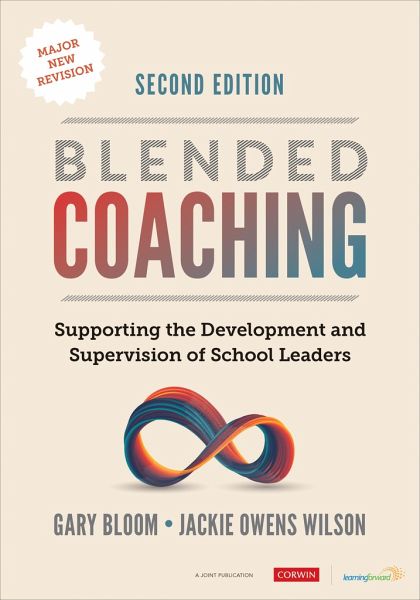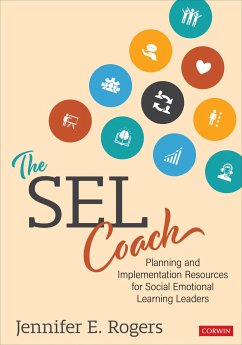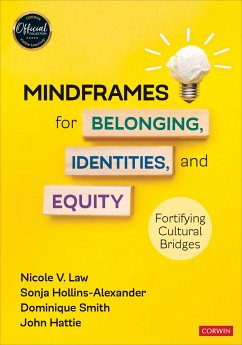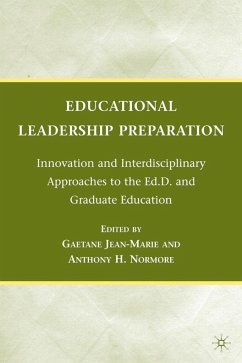
Blended Coaching
Supporting the Development and Supervision of School Leaders
Versandkostenfrei!
Versandfertig in 6-10 Tagen
29,99 €
inkl. MwSt.

PAYBACK Punkte
15 °P sammeln!
Harness the power of coaching to support professional educators.How can we construct professional development and supervision models that best serve the needs of adult learners? Building on the groundbreaking model outlined in the bestselling first edition of Blended Coaching, authors Bloom and Wilson outline a powerful set of strategies that can serve as a foundation for effective supervision.With a significant new focus on coaching leaders through issues of equity, this revised second edition provides a fresh approach to the professional development and supervision of education professionals...
Harness the power of coaching to support professional educators.
How can we construct professional development and supervision models that best serve the needs of adult learners? Building on the groundbreaking model outlined in the bestselling first edition of Blended Coaching, authors Bloom and Wilson outline a powerful set of strategies that can serve as a foundation for effective supervision.
With a significant new focus on coaching leaders through issues of equity, this revised second edition provides a fresh approach to the professional development and supervision of education professionals, including:
Explicit basic coaching strategies Elaboration of the Blended Coaching model, which addresses issues of professional practice, and social and emotional dispositions and skills An overview of coaching-based systems, pipelines, and tools for the development of school leaders Alignment to current professional standards for educational leaders Professional development resources for the development and implementation of Blended Coaching and Coaching-Based Supervision
Exploding the myth that supervisors can t coach, this book provides the foundation of effective professional supervision by presenting a range of approaches that can be applied to the individual learning needs of education leaders.
How can we construct professional development and supervision models that best serve the needs of adult learners? Building on the groundbreaking model outlined in the bestselling first edition of Blended Coaching, authors Bloom and Wilson outline a powerful set of strategies that can serve as a foundation for effective supervision.
With a significant new focus on coaching leaders through issues of equity, this revised second edition provides a fresh approach to the professional development and supervision of education professionals, including:
Explicit basic coaching strategies Elaboration of the Blended Coaching model, which addresses issues of professional practice, and social and emotional dispositions and skills An overview of coaching-based systems, pipelines, and tools for the development of school leaders Alignment to current professional standards for educational leaders Professional development resources for the development and implementation of Blended Coaching and Coaching-Based Supervision
Exploding the myth that supervisors can t coach, this book provides the foundation of effective professional supervision by presenting a range of approaches that can be applied to the individual learning needs of education leaders.












